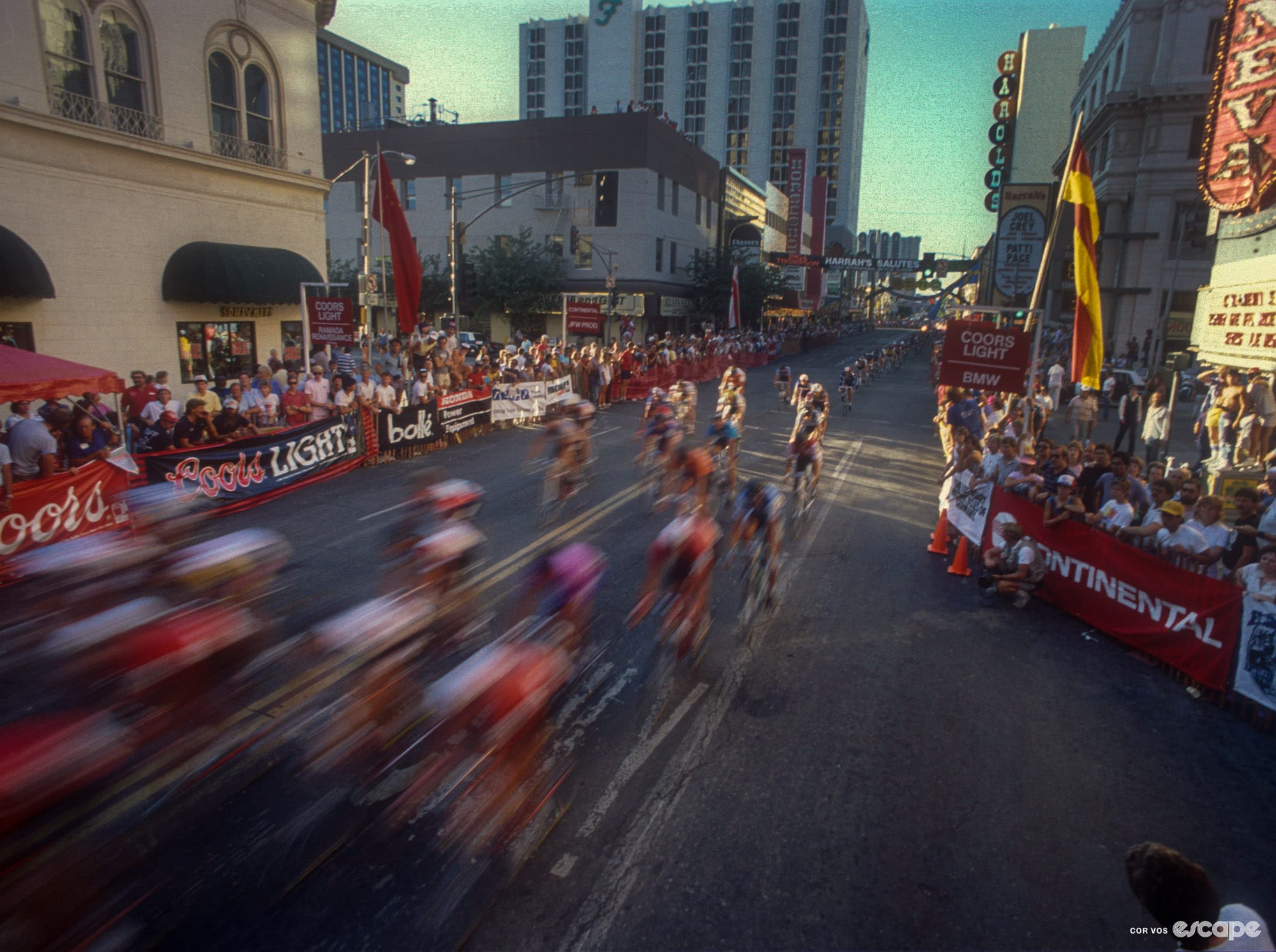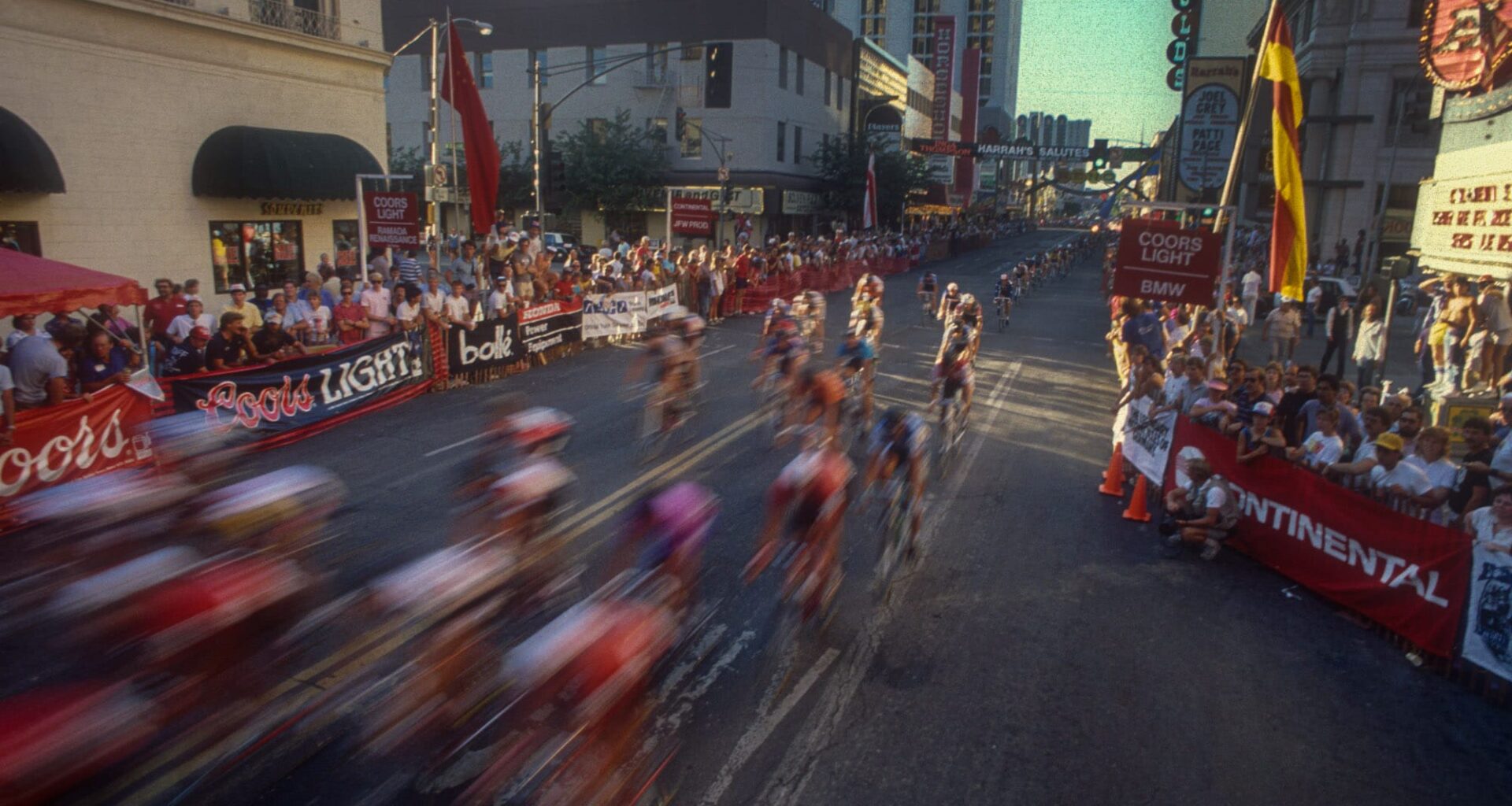
It’s about feeling, not knowing.
The Coors Classic hit all the right notes.

Cor Vos
I was five the first time I went to a bike race, or at least the first one I remember. My brother was three. My parents walked us up a hill, Lemon Hill, where the grass was too green and the fencing too yellow and the crowd pressed so close you could feel it hum. I remember the woman who would spray her hose at you, if you were hot, and who sprayed the riders because they all were. Then the sound came, low at first, then louder, then suddenly all at once, the riders were there, rushing past like a weather front, like thunder you could see.
I didn’t understand what I was watching. Nobody does on the first try. But it didn’t matter. Because what I felt was speed. What I saw was color. And one rider, Lance Armstrong, who in my five-year-old brain looked not like a person but like a flag, I remember him riding alone in front of everyone and I remember my dad wondering aloud if he could stay off the front. That image, of the man-flag flying past, all by himself, stuck harder than anything else.
The details I only filled in later. Philadelphia, 1993. The final stop of the Thrift Drug Triple Crown, a three-race American series with a million-dollar bonus if you won all three. Armstrong arrived already halfway to history, two wins in his pocket, the Motorola team built around him and reinforced with European muscle. Sean Yates flew in from Europe. The Manayunk Wall was the stage, the city streets the theater, and the script wrote itself.
An attack on the Wall. A handful of riders clear. Armstrong bridging, then driving. The final climb, the crowd spilling into the road, Armstrong detonating the rest and riding away alone. Seventeen miles to go. No hesitation. Just a line to the finish and the roar of more than a hundred thousand people on Benjamin Franklin Parkway chasing him there. A million dollars at the end of it, and that red and blue Motorola jersey; kisses blown to his mother in the crowd.
We know now that the win was bought; $100,000 in brown paper bags, according to Alexi Grewal, orchestrated by Jim Ochowicz, according to testimony in a US Federal Government False Claims Act case. These are the things we care about, and should care about, from afar and when we’re older. But I was five and I was there, in the grass, against the fence. I didn’t know what it would mean, but I felt it then, and that’s the point.
This post is for subscribers only
Subscribe now
Already have an account? Sign in
Did we do a good job with this story?
👍Yep
👎Nope

